Morose middle-aged spies, dejected low-grade politicians, and conflicted caught-up passersby who may or may not end up doing the right thing for the right reason, or the wrong thing for the wrong reason, or some mixy-matchy of those—it really doesn’t matter because it will all invariably turn to shit anyway: This is the oeuvre of John le Carré. Or was, as he recently died, probably from natural causes, but it could have been Novachuk?
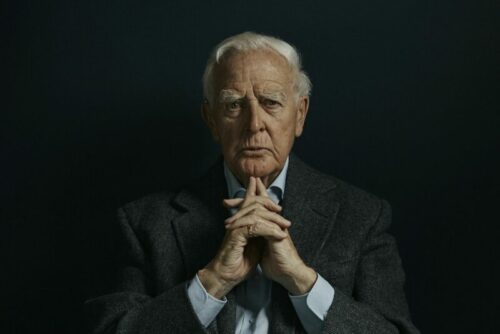
Hard to tell. Or to trust anyone. Ever.
Anyway, he’s dead. And that has inspired me to write my first blogpost in oh, 18 months? What can I say. It’s been a weird year, and I haven’t watched much worth writing about, and I am lazy.
With the death of John le Carré, however, my wife and I decided now was the time for an exhaustive retrospective of every adaptation of every book le Carré wrote, in publication order. Why? Because we’re nerds who can’t leave the house.
And, since we’re watching all these damned things, I figured the least we could do was tell you which of them are potentially worth your time, and maybe a bit of why. So grab a meat pie and pint of bitter and let’s watch a fuckton of spy films.
The Deadly Affair
aka Call for the Dead
Book 1961 / Film 1967
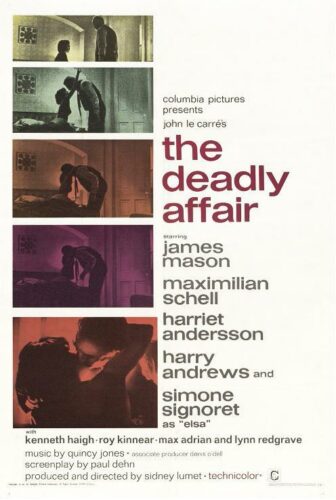
Le Carré’s first novel—and the first appearance of his off-and-on again protagonist George Smiley—was Call for the Dead. And in 1967 it was made into The Deadly Affair, directed by Sidney Lumet and starring James Mason, with Maximilian Schell and a minute or two of Lynn Redgrave. It’s not bad, he says, trying to remember something that stood out about it. Mason has that impressively unimpressive quality a good portrayal of Smiley calls for—because Smiley is basically James Bond playing at 78 rpm in a room filled with treacle.
Do I get points for combining two references no one under the age of 40 will get into a single analogy? No? Fine. He’s like Master Chief being played over dial-up on Commodore 64? Better? Worse? Whatever.
He’s no gun-carrying, lothario spy, that Smiley. He’s a podgy, meticulous, cuckold who asks questions and then thinks slowly about the possible answers. James Mason is good casting for that. And it is enjoyable watching Mason painfully search for some meaning despite the personal suffering it causes.
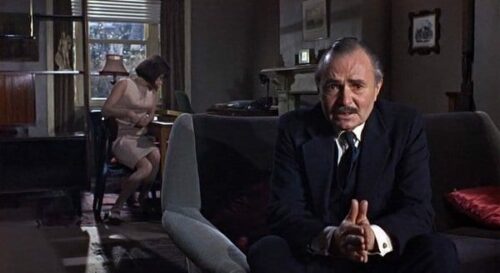
The story isn’t le Carré’s best, but swinging London, and some flashes of style, and well: le Carré is different. He was writing a new (more realistic) type of spy story and this is how it all began. I think you might check it out if, say, you were locked in the house for over a year and agreed that The Mandalorian was hot garbage, yet perversely enjoyable.
A Murder of Quality
Book 1962 / Television Film 1991
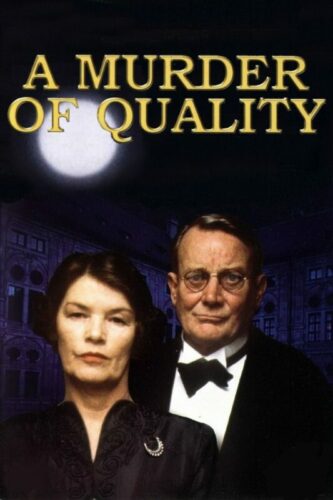
The first few minutes of A Murder of Quality do not fill one with confidence. It is a muddled, muddy, daft start to what turns out to be a quite acceptable bit of entertainment. The story stars Denholm Elliott as Smiley, who’s no longer with the Circus—which is what le Carré calls his fictional version of MI-6, the British secret service.
In this semi-sequel to Call for the Dead. Smiley gets called upon by an old colleague to look into the public school (read: private, upper class) murder of a woman someone he knows got a letter from. Tenuous, yes. British: yes.
And then, from there, it’s just a fairly routine whodunnit kind of thing, with a decent Denholm Elliott as low key Smiley and an early appearance by Christian Bale, as a student. Unless you are insane, like me, you will not watch this film, nor are you missing anything if that is your choice.
The Spy Who Came in from the Cold
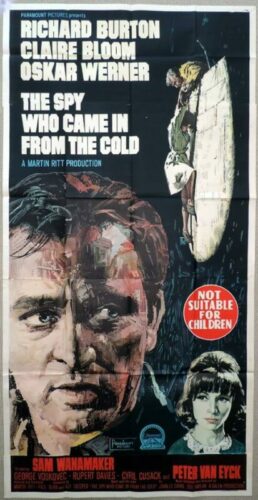
Book 1963 / Film 1965
While The Spy wasn’t le Carré’s first novel, it was the first adaptation of his work, and so it was how many came to be introduced to his take on what Kipling called “the great game.” Speaking of Kipling: Rudyard. This is a name one of you should name your son, or daughter. Think about it.
In this picture, Richard Burton plays Alec Leamas, the Circus’ West Berlin Station Chief, who gets good and rumpled by one of le Carré’s best plots. It’s best left to experience as it unravels, re-ravels, and travels so I won’t say much except that it’s about being who you aren’t so who you are can surprise you. Burton is quite good—no surprise—and although Martin Ritt’s direction is sparse and cold and frequently leaves me wanting, here it works.
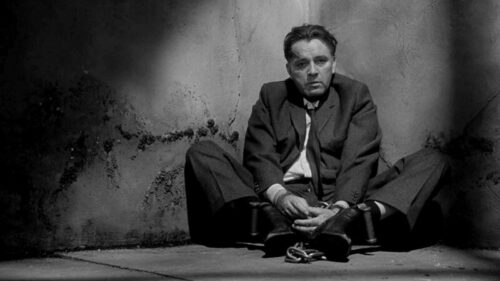
Brutal is how a lot of it feels. Stripped and raw. If you’re only going to watch a couple of these, include The Spy Who Came in from the Cold.
It is, as the poster suggests, not suitable for children.
The Looking Glass War
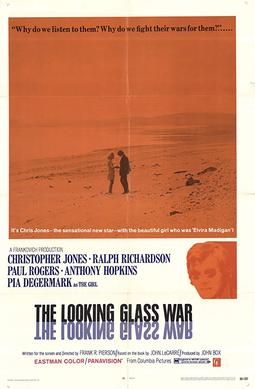
Book 1965 / Film 1970
Yes. Well. The Looking Glass War. Hm. It’s directed by Frank Pierson, who wrote Cool Hand Luke and maybe should have stuck to screenwriting? Trying to be kind here.
It is not a good movie. It is a decent little story, however, in that hopelessly futile John le Carré fashion, in which you just know from the start that everyone is going to end up royally fucked.
Ralph Richardson and Anthony Hopkins have small parts. In the book, all this miserable spy stuff happens tangentially to Smiley and Control over at the Circus, but it’s otherwise not part of the grander narrative. In the film, I struggle to recall anything worth mentioning. It’s not good. Don’t watch it.
A Small Town in Germany
Book 1968
Never been adapted. So don’t watch this one either. It’s a spy story, and his first to not involve Smiley at all.
The Naive and Sentimental Lover
Book 1971
Never been adapted, thankfully. Not a spy novel. It’s semi-autobiographical about his love life and I have no intention of ever reading it, nor of picturing Smiley naked, as you are probably doing now, you pervert.
Tinker, Tailor, Soldier, Spy
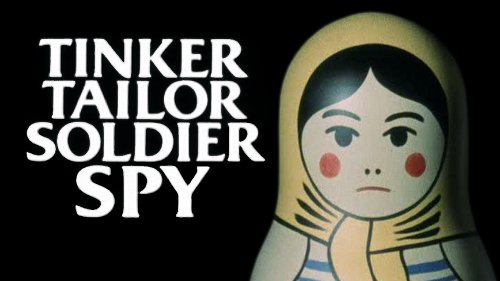
Book 1974 / Miniseries 1979
I remember, as a boy, how much my father adored both John le Carré and this adaptation of Tinker, Tailor in particular. I recall him watching the six-part BBC series, starring Alec Guinness as Smiley, multiple times.
The story is exceptional. It is what today feels like a bedrock spy story about moles and betrayal and arch-nemeses, but it’s worth remembering that all that wasn’t bedrock when le Carré wrote it. “Moles”, in fact, is a term le Carré brought into common usage (and may have even made up?). Tinker, Tailor is also resolutely slow, with very little that audiences of any day would consider action-packed. It is, instead, inevitable, in the same way the explosion of a bomb left under the table in a Hitchcock film is.
You know what is coming. When it does, it isn’t terrifying or thrilling; it’s a relief.
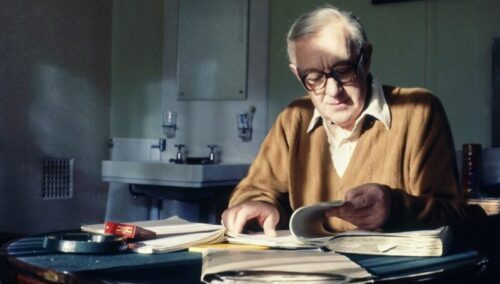
And, while the BBC was not flush with cash in the ’70s, and the production is lean, Alec Guinness is the best Smiley there will ever be. He carries all six episodes of the miniseries on his weary shoulders. He has the sadness, the gravitas, and the quiet that tames the Circus.
Highly recommended.
Tinker, Tailor, Soldier, Spy
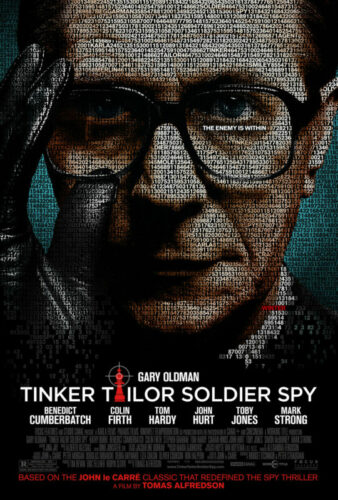
Film 2011
Tinker, Tailor was also made for the screen in 2011, by Thomas Alfredson (who’s best known for Let the Right One In). In this condensed version, Gary Oldman is Smiley and the cast is rich with Benedict Cumberbatch, Tom Hardy, Colin Firth, Toby Jones, Mark Strong and more. It looks and feels simply wonderful, like a swarm of miniature hammerheads searching your veins for delicious heart meat.
While it lacks Alec Guinness, it is in all other ways superior to the BBC version. I have seen it at least five times and it never fails to thrill. While the story is the same, there is a color and a taste here that the BBC could not manage, and it comes across in small moments that leave tiny scars on your retinas. Cumberbatch, playing Smiley’s protegé Peter Guillam, stands out and Oldman is no slouch. There is one moment, towards the end, where his Smiley lets the emotion that he’s tempered throughout his life escape for just a moment and—in that moment—you have all the feels.
The script, by Bridget O’Connor and Peter Straughan, manages what should be impossible—to condense the denseness of the novel into two hours without stripping it of meaning or pathos. Pathos this film’s got.
It is one of my favorite le Carré adaptations and you should probably watch it twice.
The Honourable Schoolboy
Book 1977
I would like to suggest, with all humility, that you make this one into a film. It has not been adapted yet—the BBC passed as it’s set in Hong Kong and they lacked the budget—and it’s the second part of what’s considered “the Karla Trilogy”, ending with Smiley’s People…
Smiley’s People
Book 1980 / Miniseries 1982
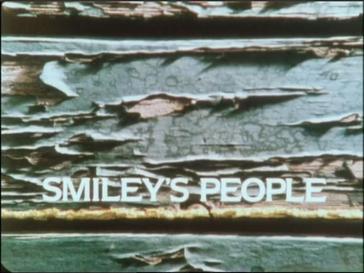
Following the success of their Tinker, Tailor adaptation, the BBC re-enlisted Alec Guinness for Smiley’s People, another six hours of wonderfully slow, toothsome, spy one-uppance. In this, Smiley is drawn back in from his retirement by something the new guard would rather refuse entry to, but which Smiley recognizes, demurely, of being of gravest importance.
It is just as deliberate and quiet as Tinker, Tailor, and slightly less gripping, but still worthwhile for the time spent with Alec Guinness. Also appearing—briefly and interestingly—are a young Alan Rickman as a hotel clerk and Patrick Stewart, in a cameo. If one cares about such things: please care. And clap.
Smiley’s People can be seen in full, and in fair quality, on YouTube. It is not otherwise easily available unless you want to buy some DVDs, which is a pity.
There are rumblings that Alfredson and crew are planning to make a film of this as well, but those rumblings are distant and quiet. One can hope, however.
The Little Drummer Girl
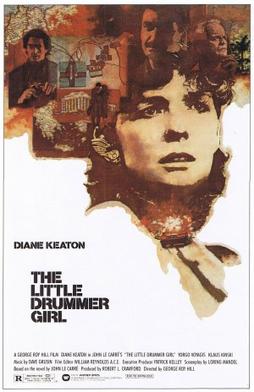
Book 1983 / Film 1984
George Roy Hill directed Butch Cassidy & the Sundance Kid and The Sting, and so we give him a lot of respect, credit, and room to swing a knife. He also directed this le Carré adaptation, however, and demerits must be issued. It is not, how do you say, good.
Primarily this is because Diane Keaton—whom again, respect, credit, knife swinging room—is tragically miscast as Charlie, a young actress manipulated into playing the lover of a captured Palestinian terrorist in order to snare his big-fish, bomb-making brother. While Keaton is actually quite good at conveying the unbalanced Charlie—a woman pushed too deep, too far, and too fast—it’s hard to believe her as Charlie in the first place.
That makes the rest of the film hard to sink into. It’s a full plate of espionage served cold. Klaus Kinski is in it, but not enough.
The Little Drummer Girl
Miniseries 2018
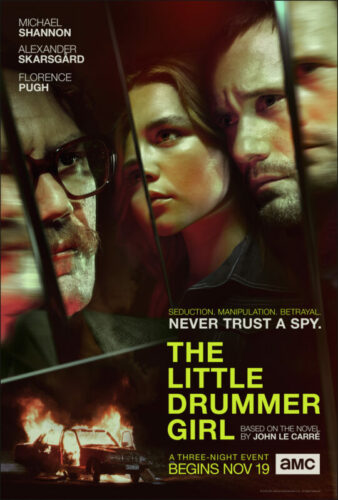
Much more recently, Park Chan Wook took a stab at the same material in a six-parter for BBC One. It is in many ways vastly superior to the earlier attempt, and yet also—to my mind, at least—ultimately disappointing.
While Florence Pugh fits neatly into the role of Charlie, and Alexander Skarsgård is a massive step up as her Mossad handler, Gadi, the series isn’t Park Chan Wook-y enough. The look is delectable, the editing and direction slick, and the performances adept, so perhaps it’s the story? It doesn’t bite you the way it should, particularly with Park Chan Wook calling the shots.
I just rewatched his The Handmaiden and it slays. This does not slay.
Even with the betrayal, murder, action, and tension, it feels chilled. The emotional pulse for which I adore much Korean film is here subdued. And so, high expectations were not met. Your results may vary.
At the least, it is a worthy way to kill a few evenings during an endless pandemic, should you find yourself in one.
A Perfect Spy
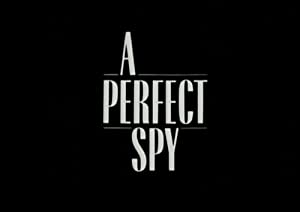
Book 1986 / Miniseries 1987
There were moments during our screening of the seven-part BBC adaptation of A Perfect Spy when I regretted our devotion to completism. Many moments. Most of them, actually. Because it was fucking dreadful.
The novel—semi-autobiographical—is told in a jumbled timeline of remembrances. A high-level British spy disappears after the death after his con-man father and, through flashbacks and investigation, his secrets come out. In the series, all of this is unpacked into an interminable chronologically organized series of events one is hard pressed to find a fuck to give about. It does not help that the series lead, Peter Egan playing Magnus Pym, is playing a dolt with all the expressive emotionality of a mackerel laid out on ice.
If you suffer through episode one, which is all Pym’s miserable childhood, you’ll find him thrown in with Axel (Rüdiger Weigang)—a Czechoslovakian spy—first just as friends. Weigang is a bright spot here, but it’s not enough. For he cleverly recruits Pym—so cleverly that it is unclear whether Pym realizes he’s been recruited, or whether they’ve recruited each other? Have they? Maybe? Maybe not? No, they haven’t. See above in re: dolt.
Actually, it is unclear what is happening, to whom, or why at many points in the seven-hour slog. Towards the end, when Pym’s perfidy becomes clear to all, there is a marked improvement, from ghastly to just not very good. It’s honestly hard to imagine anyone else making it that far into this series, though, so who cares?
The Russia House
Book 1989 / Film 1990
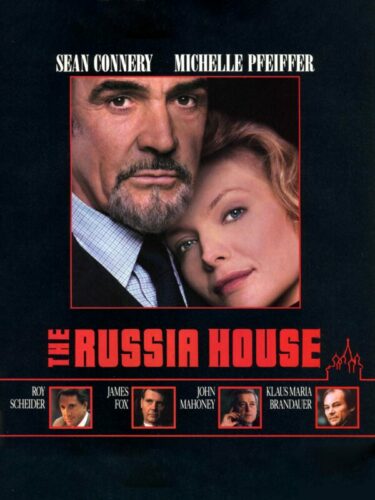
Sean Connery. Michelle Pfeiffer. Roy Scheider. Russia. Saxophones. The CIA. Probably some onions? 8 hours. Your brother. $15,000.
Those are some of the things that (perhaps) inhabit this limp but well-meaning run at The Russia House. It’s the story of a besotted sot of a publisher (Barley Scott-Blair / Connery) who fools himself into becoming the unwitting conduit for potentially world-order-changing information leaking out of the Soviet Union. There is, naturally, a beautiful woman (Katya Orlova / Pfeiffer)—who Barley ranks higher than Western geo-political supremacy—and a bunch of assholes who feel Barley’s priorities are misjudged.
Work the rest out from there, okay? What am I, your mom?
The story is fine—script by Tom Stoppard—but also kind of sprung, like an uncomforatable mattress. It’s more enjoyable watching the spies try to figure out how to get unfucked than it is to track Barley as he becomes cognizant that it’s as easy to get unborn as it is to get unfucked. And he’s good. Connery is quite good playing a guy who couldn’t care less what happens to pretty much everyone but Katya once he sets eyes on her. Pfeiffer is also good. Scheider, good as well. All good. Lots of good smooshed together in a film that’s just fine. Yep. It’s a movie all right. And I watched it.
The Secret Pilgrim
Book 1991
No one has made this series of memories sparked by Smiley’s told-round-the-table anecdotes into a film. I haven’t read it but think I will soon. It sounds good.
The Night Manager
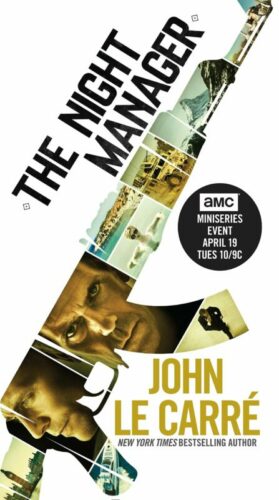
Book 1993 / Miniseries 2016
Here is where I prove my cinephile cred by claiming I like both versions of Tinker, Tailor, Soldier, Spy better than Susanne Bier’s six-part adaptation of The Night Manager—but you know what? I’m not sure I do. Or that I do consistently? For The Night Manager is pretty much ideal evening entertainment, top to bottom and all around it’s taut, tanned middle. Even if the last time I reviewed it, I was less laudatory.
Times change. Moods change. Everything is better after A Perfect Spy.
Tom Hiddleston is fantastic as Jonathan Pine, the titular manager of a Cairo hotel who overextends his hospitality to end up athwart an arms smuggler. Pine gets recruited by Angela Burr (the always fabulous Olivia Colman), an intelligence officer with a baby on the way and a personal grudge against said warmonger—”Dicky” Roper (Hugh Laurie, enjoying himself).
There aren’t many women characters that le Carré has written with agency, but Angela makes up for some of that. After her, you’d probably have to go to Anne—Smiley’s philanderous wife—who is a main character in many Smiley stories without actually appearing in them often or ever.
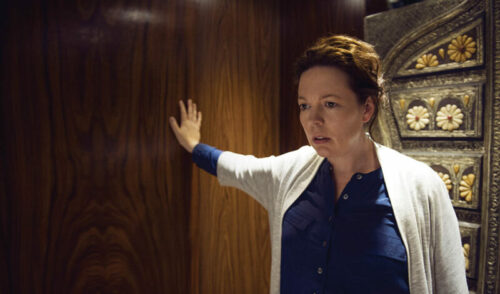
But The Night Manager! All that one loves about le Carré, plus a taste of that action, sex, and brutishness that makes Bond more mainstream. Hiddleston’s Pine is ex-army and willing to take a risk. His antagonists aren’t ideas, but rather big, violent men with access to heavy weaponry. And so, I suppose The Night Manager isn’t my favorite le Carré as it’s not really that le Carré. It is, however, chewy good television. And shout out to Tom Hollander as Corky, because great part well played and, to David Harewood, too. Screw it: drinks for everyone!
The ending is a bit cheery, likely as there was talk of a second series. That’s also not so le Carré, but you know what? Some things have to turn out reasonably now and again, if only to give us hope… and the strength to watch more John le Carré adaptations.
Our Game
Book 1995
Not adapted. A spy novel.
The Tailor of Panama
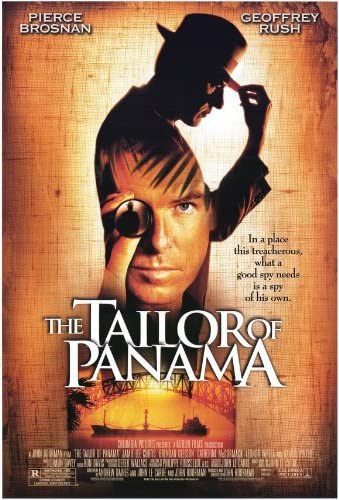
Book 1996 / Film 2001
When I was a wee lad of 29, my family went out to the theater to see this one. I distinctly recall it ending and us all filing out of the theater silently, unwilling to be the first one to say how much it sucked. But suck it did. Or did it? Better watch it again to be sure, as the reviews are decent.
Yep. It sucks. And it sucks because while Geoffrey Rush isn’t bad as the eponymous tailor, Pierce Brosnan is acting in a much different, and much worse film. He’s as subtle as a dog fart in a sauna. And look, I like the guy (as an actor, never met him), but his take on Andy Osnard—an MI-6 ne’er-do-well shunted to Panama—is so broad, so clunky, so charmless, that the mind boggles. Is this how John Boorman directed him? Plausible. I’ve seen Zardoz. Yet Osard is supposed to be a charming lothario while lacking anything resembling charm.
My wife agrees. Osnard is not yummy, even in a bad boy way. And so we’re left with the story of an entire hemisphere led astray by a man from whom I’d be unlikely to buy roadside melons. The story is funny and terrifyingly believable—as le Carré did the research and had the experience to see behind the curtain. The film is neither.
Jamie Lee Curtis, Brendan Gleeson, and a teeny weeny Daniel Radcliffe round out the cast. I feel bad for them all.
Single and Single
Book 1999
A tale of money launderers, Single & Single remains un-adapted. It’s a good story, though.
The Constant Gardener
Book 2001 / Film 2005
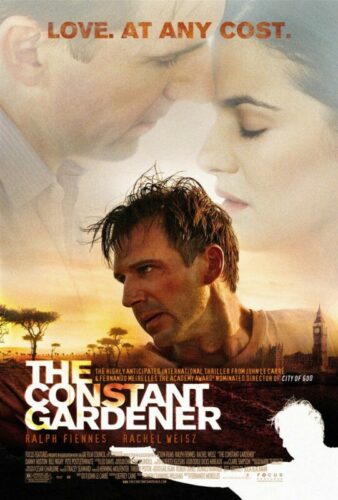
I first saw The Constant Gardener when my now-wife and I were planning our honeymoon to Africa. The film’s fluid, swampy, drowning in corruption tale did not fill us with enthusiasm for our journey.
We went anyway. Travel in East Africa—like The Constant Gardener—is beautiful, and infecting, and propulsive. You get into it, and then you never really get out. Once you know, you can’t unknow.
Fernando Meirelles’ film, starring Ralph Fiennes and the enthralling Rachel Weisz, brings a milquetoast British diplomat to Kenya alongside his passionate, mysterious new wife. There, she lifts the wrong rocks. She cares in a place where others would rather she wouldn’t. And, because he cares about her, he comes to know, too. And once you know, you can’t unknow.
The film churns like the tide and beats like wings. It is easily one of the most visually compelling adaptations on this list, one of the best directed. If you have seen Meirelles’ earlier City of God, then you know a bit of what to expect: brutal, electric, heartbreaking truth.
It’s a hard story, told cleanly, informing us “the world is cruel and we are in it.” How deep, is a choice we think we get to make, but we’re wrong. In that way, it is among the best from le Carré.
Absolute Friends
Book 2004
I read this one. Didn’t love it. No movies made of it.
The Mission Song
Book 2006
Unadapted. About a coup in East Congo. I am now moved to read it.
A Most Wanted Man
Book 2008 / Film 2014
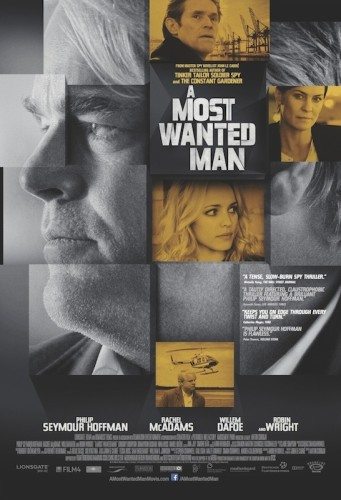
Supreme Being reviewed A Most Wanted Man here at length previously, following the untimely death of star Philip Seymour Hoffman. It was, I thought from a previous viewing, depressing and cold.
John le Carré knew that kind of world and wrote those kinds of stories. But this time, with distance, and perhaps also with the experience of watching all these in order, I find it depressing and cold and wonderful.
Hoffman is exceptional, as always, but so too is the direction and cinematography. The way sound abruptly drops out to leave you unsteady. The way angles and colors compete to soothe and unsettle. And the futile hopelessness of it all.
Can we make the world a safer place? Le Carré, it seems, suggests not. He, in A Most Wanted Man, tells us not to fear bombs, or fanaticism, but the casual soullessness of a box checked and a job done.
I miss Philip Seymour Hoffman. This is a film you should watch.
Our Kind of Traitor
Book 2010 / Film 2016
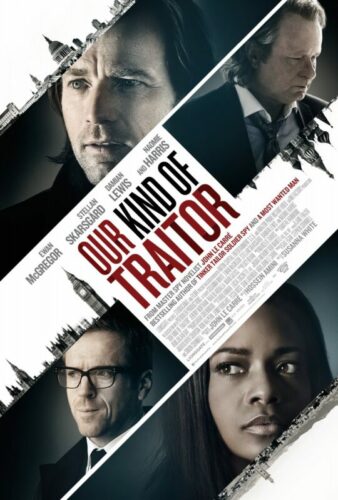
And so we come to the end, so far at least. Our Kind of Traitor is the last book of le Carré’s to be adapted and it’s a bit of let down. It has a thin feeling to it, as if someone forgot to add the sugar, or cream, or arsenic.
On the one hand, there’s nothing particularly wrong with it. It’s more that there’s nothing particularly right. Ewan McGregor plays the unwitting schnook who gets sucked into a game many levels above his head, in this case, one involving the Russian mafia, British corruption, and ducks. Well, one duck. Or fine, no ducks. But I think a duck might have helped?
Damian Lewis plays the requisite British spy. Naomie Harris plays the wife with little to do. Stellan Skarsgård plays the Russian money man who wants out. It’s all filmed Night Manager style, with plenty of dancing cameras and shiny locations and eye candy. In there, under there, somewhere is a John le Carré story about doing wrong and right, but it’s shy right now. Maybe it will come out later?
Nope. Thanks for playing.
A Delicate Truth
Book 2013
About a mission in Gibraltar, this vaguely-autobiographical novel was reported as being in development as a film for BBC back in 2013, but so far: bupkis.
A Legacy of Spies
Book 2017
Come, old friend, and visit with aged Peter Guillam, Smiley’s one-time protegé, who’s forced to remember and deal with the aftershocks of the events of The Spy Who Came in from the Cold. It’s a claustrophobic book that feels more akin with le Carré’s earlier work, and I enjoyed it. No adaptations announced or expected.
Agent Running in the Field
Book 2019
Le Carré’s last novel. It’s a smaller story that feels a fitting end to his series of (mostly) espionage tales. No adaptations at this time.
Silverview
Book 2021
And, surprise, it has now been announced that a final, complete Le Carré novel will be published October 2021. According to the New York Times:
“Silverview” follows Julian Lawndsley, who has given up a big city job for a quieter life running a bookshop in an English town by the sea. After a few months on this new path, he is visited by Edward, an émigré from Poland who possesses an unusual amount of knowledge about Julian’s family and an unusual amount of interest in his shop. A spy chief in London receives warning of a treacherous leak, and the investigation leads to this coastal town.
And there you have it. Some months of my life spent watching spy movies of varying quality so that I might write about them for you. Upon completion of the last, the wife and I discuss: which was the favorite? Which the best?
For me, I’m torn between the film of Tinker, Tailor, Soldier, Spy and, I’m surprised to discover, A Most Wanted Man. While I love Alec Guinness in the BBC stuff, the other elements of those productions are fusty and soft. The Spy Who Came in from the Cold and The Constant Gardener are both great in their ways, but move me less-so. And while I enjoy The Night Manager quite a bit, it’s not so le Carré, is it? More like an amuse bouche between meatier courses. The wife ranks it higher, though, and to each her own.
John le Carré did something new. He took the glamour and thrills of espionage stories, the glory and sexiness of spies, and replaced it all with an unlovely truth: it’s a dirty, wretched, despondent business, in which the best one might hope for is to be shivved by one’s enemies rather than by one’s friends.
That is, most likely, a far more honest a portrayal of it all. And for that, gratitude and respect. Rest in peace John le Carré.

The Spy Who Came in From the Cold is one of those films that will stay with me for a long time, but I don’t want to see again. Brutal is right – Burton’s performance is great. You can tell that he’s longing for death from the get go, and that he’s all too familiar with what it’s like to drink oneself into a despondent stupor.
I read Tinker Tailor and watched the Oldman movie last fall. The only nit I pick with the movie is the suggestion at the end that Smiley’s wife returns. Takes away a bit from the general idea that the only thing Smiley has going for him in his life is a methodical dedication to his work. Then again, why not? I suppose it’s silly to argue that the pure dreariness is diluted. It’s ok to let this fictional character have a little happiness, I guess.
My recollection is that Anne comes and goes. And comes and goes. And comes and goes. And that it isn’t until Smiley’s People that he finally tells her it’s done and he doesn’t want her to come around again. She has affairs throughout these stories and Smiley is, to varying degrees, quietly tortured about it while doing basically nothing.
So when she comes back at the end of TTSS, it isn’t for good, just for now. It is just another cycle of his life playing out again.
Re: A Most Wanted Man. I told you so.
I’m sure I’ve seen The Spy Who Came in from the Cold… but I can’t remember it at all. Will watch soon.
I am fairly certain I have never read one of his books. Which one should I read?
Which one he asks. I’d say Tinker Tailor if you don’t know the story, but you do so… Maybe the Spy Who Came in before you watch it? Or Smiley’s People? Or whichever one you grab first? I haven’t read them all but I’ve enjoyed most I’ve read. We have a few if you want to borrow one.
I’m still almost pretty kind of sure I’ve seen The Spy…Cold sometime long ago, but having watched it last night, I sure didn’t remember anything about it. Good stuff! Though actually I thought the ending would have been better–more depressing, more horrible, more real–if after looking down at Nan, he’d climbed over and driven off with Smiley. Strangely enough, the ending they went with feels like pulling the last punch a little bit. Like it’s still terribly depressing, but in a less complex way.
I hear you. I feel like that was the part of the film that was staged the least well. I think “Leamas is ruined by the experience and would rather die” is more depressing (and in character) than, “Leamas decides to live with his role”, but the clunkiness of his retreat from escape made that feel… off.
It was, unquestionably, better than Battleship, which we watched last night. Because that’s what it’s come to.
Right. But “Leamas is ruined by the experience and wants to die…but is pulled over the wall and driven away alive regardless” is the ending I was thinking would be most horrific.
Battleship, eh? Yikes. Sad times, indeed.
The Constant Gardener is a personal favourite film. It has that kind of sad song vibe. I love it. It’s a tragic tale but all the more effective because you get a real sense of what she meant to him, even though she’s arguably a manic pixie dream girl of the activist-intellectual variety.
I loved the Tinker, Tailor, Soldier, Spy movie as well, should watch that again.
The Spy Who Came in From the Cold has been on my watchlist for ages but not got around to it.
The Russian House I started a couple of months back but didn’t finish it.
Going to catch up on The Night Manager as some friends also recommended that.
Had no idea that Park Chan-Wook had made an adaptation.
A sad song. Yes. It’s achingly tragic from the start. And ends correctly.
You should find time for The Spy Who. It’s worth keeping in circulation. And you needn’t bother finishing the Russian House. There are some nice scenes, but it’s not worth keeping in circulation. The Park Chan-Wook Drummer Girl only hit my radar when I dove into all this. I believe it came and went without much of a splash. It’s decent enough. I guess it depends on how homebound you are during the pandemic…
See what you can do about getting someone to make The Honorable Schoolboy. I want to watch that one. You can do it.
And, it has been announced that a final Le Carré novel will be published posthumously: Silverview, released in October.